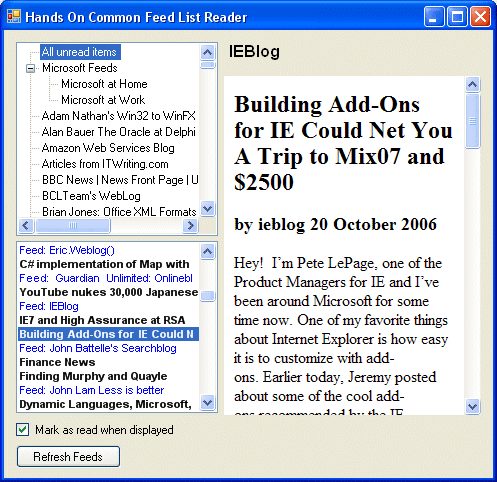Microsoft’s Eric Rudder kicked off Tech-Ed Europe with a keynote extolling the virtues of Vista, Office 2007 (which has just been released to manufacturing), and Exchange 2007. This Tech-Ed, it appears, won’t be characterised by major new announcements; it is more about long-awaited technology finally getting released.
Rudder presented some interesting stuff around enterprise portals built on Sharepoint and Windows Workflow Foundation, using the fictional Fabrikam clothing company as an example.
An eye-catching feature of Fabrikam’s online store aroused attention: a gyrating AJAX-driven model with drag-and-drop clothing. Boo.com lives again.
A more geeky highlight came at the end of the keynote, when Anders Hejlsberg demonstrated LINQ (Language Integrated Query) in C# 3.0 (not to be confused with .NET Framework 3.0, which is the old stuff). I’m already familiar with LINQ, but one thing I hadn’t seen before is a feature of Orcas, the next Visual Studio. Hejlsberg called it “paste XML as the code with creates that XML”, and that’s exactly what it does. Copy some XML to the clipboard, paste it into your code, and it appears as C# code manipulating XElement and XAttribute to build that XML as output. You can then adapt the code to generate more XML according to the same schema. Neat.

